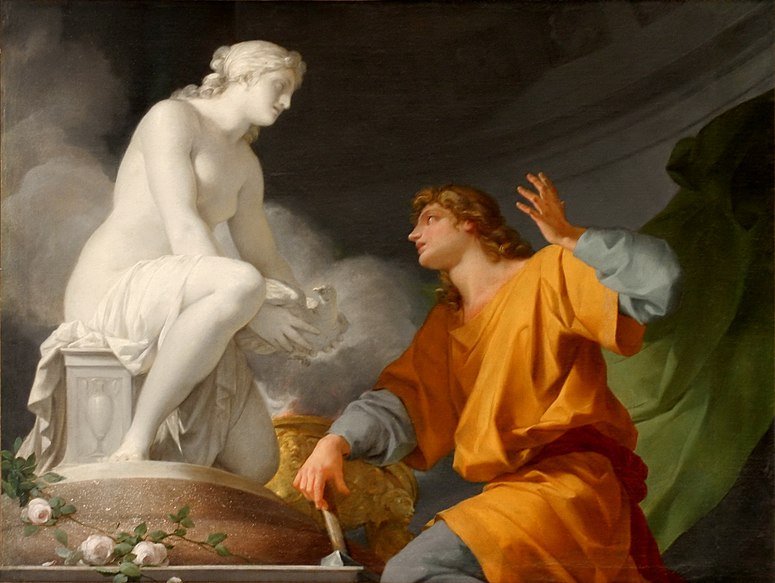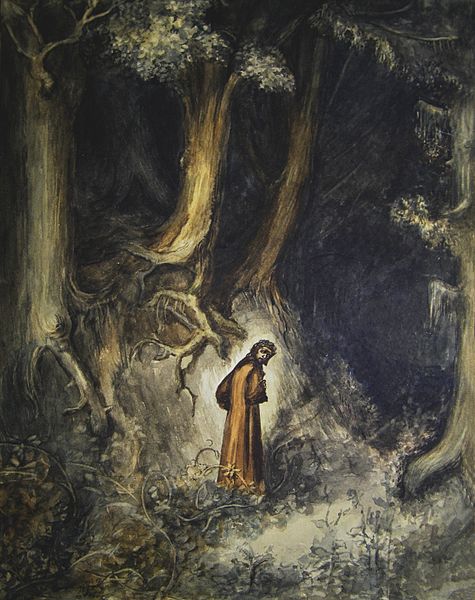Using his supreme sculpting skills, Pygmalion sought out to create the ideal woman. He isolated himself in his castle and began to create his masterpiece. Yet, after weeks of work, the final result was nowhere near his expectations for the perfect woman. So, he started over.
The king constantly looked for ways to improve his creation. He looked to perfect every single detail of the sculpture in the hopes that it would turn out better than the last. Yet, after more weeks of work, the sculpture was still not good enough.
Over and over, the king labored through every detail of his canvas, desperately trying to achieve his goal. However, months passed to no avail, and the king felt more alone each and everyday.
A year after his project began, he had made no progress. He sat alone, surrounded by a dozen unfinished sculptures with no end in sight.
"Why??" Pygmalion pleaded to the gods. "Why must you torture me like this? Why will you not allow me to find the one thing I have been looking for my entire life?"
Suddenly, a bright light emerged before him, forcing Pygmalion to turn away. When the light dimmed and the king looked back, the Queen Venus had appeared before him in a flowing, bright red dress. He stood in awe for a minute, but his dumbfounded glare returned to one of anger.
"So now you've arrived to save the day?" Pygmalion said sarcastically. "After I've pleaded for help for months? Why will you not help me in my pursuit of the woman of my dreams?"
Venus chuckled. "You have not learned a thing about love, have you?"
"What do you mean?" asked Pygmalion, taken aback by the goddess' response.
"Love is not about finding the perfect woman because there is no such thing. Love is about finding the perfect woman for you."
Author's Note
When I was writing this story, I wanted to throw a little twist in the story from the anthology website. As a result, I thought about what it would be like if Pygmalion struggled to create the perfect woman from the original story. I enjoyed writing from that perspective and exploring Pygmalion's struggle in his fight for love. I also wanted to incorporate elements from other stories that I read in the anthology. For example, I ended the story with my attempt at a moral, resembling those at the end of Aesop's Fables. This not only allowed me to end the story with a sort of ethical lesson, but also left the audience with a little cliffhanger so that they can imagine how the story might have ended themselves.
Bibliography. "Pygmalion" from Metamorphoses by Ovid, translated by Tony Kline (2000). Web source.
 |
| A sculpture based on Jean Léon Gérôme depicting Pygmalion and his love, Galatea. |















